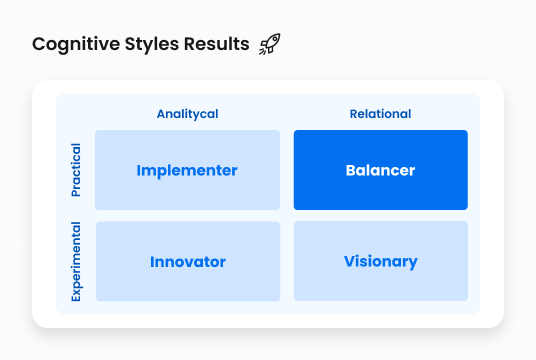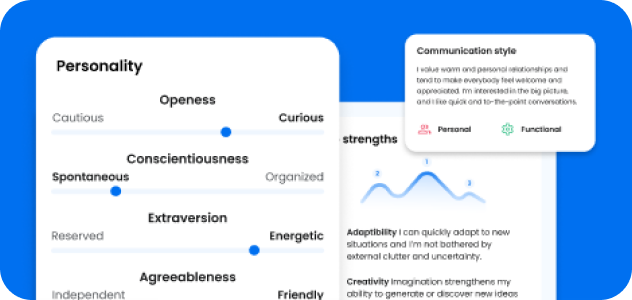Cognitive style test

The Cognitive Styles Assessment is a scientifically validated tool
Benefits
By taking the cognitive styles assessment, you will gain a better understanding of your cognitive strengths and weaknesses, allowing you to make informed decisions and improve your performance.
The Cognitive Styles Assessment is a scientifically validated tool
How you can use this test?
How it works?
you’re at ease, undisturbed
and ready to focus.
you through the process. It’s
easy - just go with your gut
feeling.
you will receive your
feedback immediately
anyone, with just a click of a
button
What's Inside? Get immediate feedback by measuring these traits in you
Cognitive style test
Assessment Insights
Scientific and Empirical Foundations
Development of the cognitive styles concept: Witkin, H. A., Oltman, P. K., Raskin, E., & Karp, S. A. (1971). A manual for the Group Embedded Figures Test. Palo Alto, CA: Consulting Psychologists Press. Cognitive styles and learning strategies: Pask, G. (1976). Styles and strategies of learning. British Journal of Educational Psychology, 46(2), 128-148. Cognitive styles and collaboration: Kozhevnikov, M. (2007). Cognitive styles in the context of modern psychology: Toward an integrated framework of cognitive style. Psychological Bulletin, 133(3), 464-481. Cognitive styles and communication: Zhang, L. F. (2003). Does the big five predict learning approaches? Personality and Individual Differences, 34(8), 1431-1446. Cognitive styles and team performance: Sternberg, R. J., & Zhang, L. F. (Eds.). (2001). Perspectives on thinking, learning, and cognitive styles. Mahwah, NJ: Lawrence Erlbaum Associates. Cognitive styles and personal growth: Messick, S. (1976). Individuality in learning: Implications of cognitive styles and creativity for human development. San Francisco, CA: Jossey-Bass.


